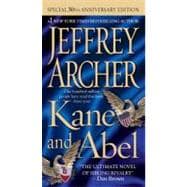
JEFFREY ARCHER was educated at Oxford University. He became one of the youngest members of the House of Commons at the age of 29, and was elevated to the House of Lords in 1992. His books have sold over 125 million copies worldwide. Archer is married with two children and lives in Cambridge, England.
Visit www.jeffreyarcher.com
The New copy of this book will include any supplemental materials advertised. Please check the title of the book to determine if it should include any access cards, study guides, lab manuals, CDs, etc.
The Used, Rental and eBook copies of this book are not guaranteed to include any supplemental materials. Typically, only the book itself is included. This is true even if the title states it includes any access cards, study guides, lab manuals, CDs, etc.